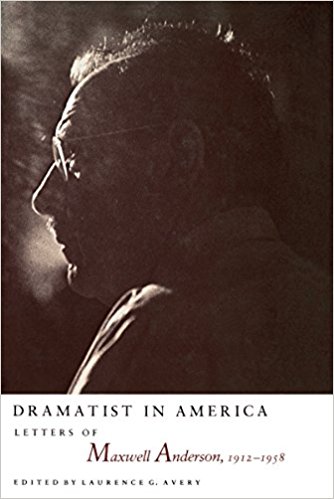About
Born in Pennsylvania, Maxwell Anderson’s family moved often during his youth because his father was a minister. He studied at the University of North Dakota and at Stanford University. After a short period teaching, Anderson became a journalist. He wrote for several newspapers in San Francisco and then in New York.
Anderson also wrote plays, and after several unsuccessful ones, his play “What Price Glory?” made him famous in 1924. Anderson quit his job as a journalist that year and began to write full-time as a dramatist. In addition to winning the Pulitzer Prize for Drama in 1933, he was also won the New York Drama Critics Circle Award twice. He wrote the screenplays for Death Takes a Holiday and All Quiet on the Western Front. He also wrote several very successful plays about the Tudor family, and one even became an Oscar-winning movie (Anne of the Thousand Days). He wrote a historical play about George Washington and another about Socrates, both of which were adapted for television.
Anderson collaborated with Kurt Weill on Weill’s stage works Knickerbocker Holiday (about early Dutch settlers in New York City) and Lost in the Stars (based on Alan Paton’s novel Cry, the Beloved Country). He was collaborating with Weill on Huckleberry Finn or Raft on the River when Weill died suddenly of a heart attack in 1950.
–Christie Finn






